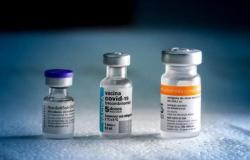For decades, the egg has been shrouded in controversy, especially related to its supposed harmful effects on cholesterol and cardiovascular health. However, scientific evidence has disproved these myths, highlighting the nutritional benefits of this complete and accessible food. Agricultural Engineer Juarez Morbini Lopes, PhD in Animal Nutrition, addressed these issues in a study that refutes mistaken notions about eggs. In his research, Doctor Morbini highlights that moderate egg consumption is not associated with a significant increase in LDL cholesterol levels, the so-called “bad cholesterol”.
A aforementioned study, carried out in 2007 and reported in the “Medical Science Monitor”, examined the eating habits of 9,500 people and concluded that daily egg consumption did not increase the risk of heart disease or stroke in healthy adults. Furthermore, it is suggested that egg consumption may even contribute to reducing blood pressure.
The American Heart Association (AHA) has constantly revised its guidelines regarding egg consumption, and currently recommends eating at least 4 eggs per week due to the nutritional benefits they offer, essential for maintaining health. It is essential to understand that cholesterol plays essential roles in the body, including the production of bile acids, digestion of fats, synthesis of sex hormones and formation of cell membranes. A cholesterol deficiency can lead to infertility problems and predisposition to conditions such as depression and infections.
Doctor Morbini also highlights that most of the cholesterol present in the human body is produced by the liver and is influenced by genetic factors, not just diet. Studies carried out with groups with different plasma cholesterol levels demonstrated that daily egg consumption did not cause significant changes in cholesterol levels, confirming the lack of relationship between egg consumption and cholesterolemia.
In addition to providing high-quality proteins, energy, minerals and vitamins, eggs are a highly nutritious food, comparable to a portion of beef in terms of nutritional value. However, it is important to consume it properly, avoiding excessive consumption of raw egg whites due to the presence of the avidin enzyme, which can interfere with digestion.
In terms of preparation, quick cooking is preferable to preserve as much of the egg’s nutrients as possible. The loss of nutritional value is directly related to the cooking time, and it is recommended to consume boiled eggs for a short period of time to maximize their nutritional value.
Although Brazil has been increasing its average egg consumption in recent years, there is still a need for greater clarification about the benefits of this complete and affordable food. The egg should not be seen as a villain, but rather as a valuable source of nutrients that can be enjoyed by all ages, contributing to a healthy and balanced diet.
By demystifying the relationship between eggs and cholesterol, Doctor Morbini hopes that people can enjoy this food without fear and enjoy its numerous health benefits. As writer Luiz Fernando Veríssimo joked, perhaps now is the time to recover all the eggs we stopped consuming over the years?
Tags: EGG CHOLESTEROL unveiling myths truths
--





